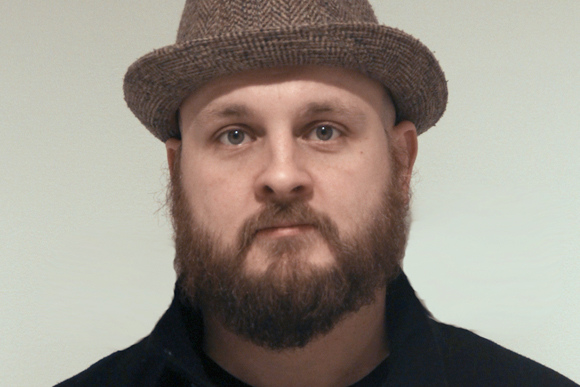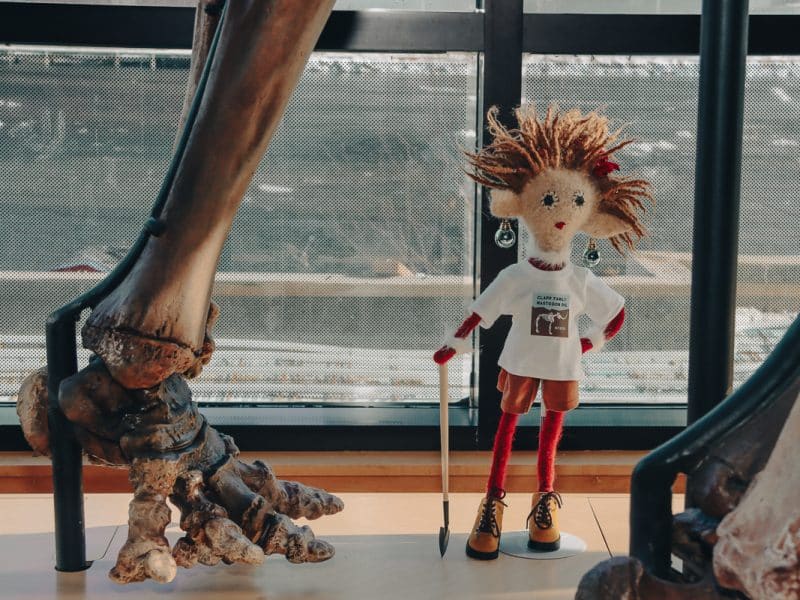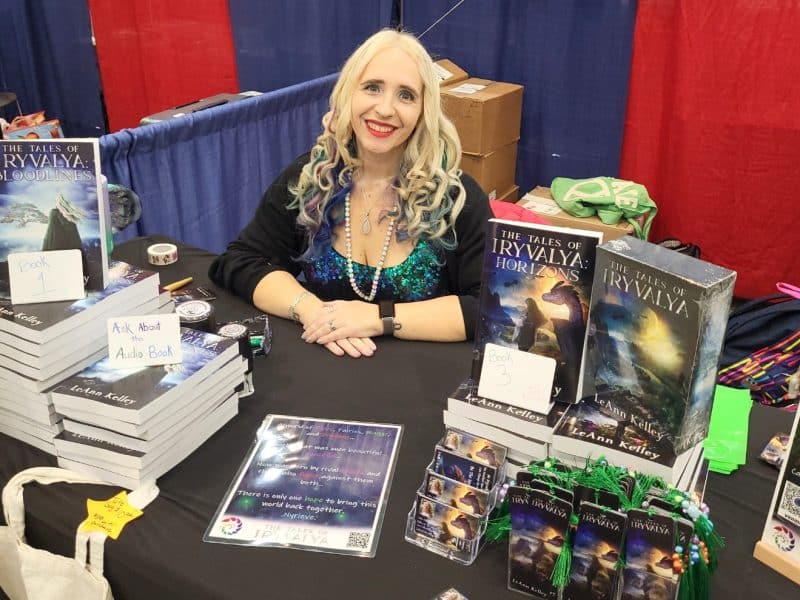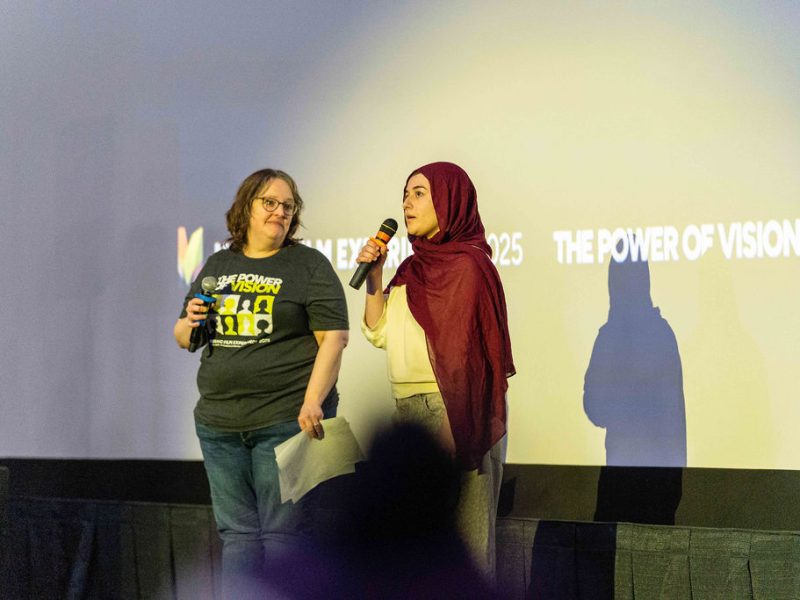RapidChat: Michael Saunders
West Michigan native Michael Saunders has always had a passion for the arts and social justice. After a stint in activist advertising, Mike took another route and expressed his calling for equality through art. From this, Mike was able to foster multiple creative outlets by co-founding the Grand Rapids Soul Club, as a producer for multiple award-winning films with Sob Noisse, and as a teaching artist at the West Michigan Center for Arts and Technology (WMCAT) for film and audio production. Jenna Morton gets the scoop on what he's up to now.

West Michigan native Michael Saunders has always had a passion for the arts and social justice. After a stint in activist advertising, Mike took another route and expressed his calling for equality through art. From this, Mike was able to foster multiple creative outlets by co-founding the Grand Rapids Soul Club, as a producer for multiple award-winning films with Sob Noisse, and as a teaching artist at the West Michigan Center for Arts and Technology (WMCAT) for film and audio production.
RapidChat: Have the arts always been your biggest passion?
Michael Saunders: Yes, I have always been very passionate about art. I played in bands during high school and have been in love with music from a very young age. I have also always been largely interested in films.
RC: Do you have any other interesting hobbies or interests?
MS: I like being outside and trying to stay fit. One of my favorite things to do in the winter is cross-country skiing. Other hobbies exclusively revolve around the arts, like going to concerts and seeing movies. I also own and ride a motorcycle – does that count as a hobby?
RC: Sure! Being an artist, what is your take on ArtPrize?
MS: I don’t really care for ArtPrize. Personally, I don’t like a lot of the artwork, but I can see the benefits of it as well. For one, there is the significant economic boom that it brings to the city. I think for artists it’s also an opportunity to get exposure. I would never look down on someone for wanting that.
But, as far as the actual artwork goes, there have been a few pieces that have been interesting to me. It’s just something I choose not to participate in. I would actually like to see a yearlong movement towards the arts instead. I’m not a blanket hater; it just seems like a strange way for a city to embrace art.
RC: What kind of impact do you think the arts community has on our city in general?
MS: I think there are a few different arts communities in Grand Rapids that are often segregated by race, religion, politics as well as simple artistic aesthetics. I would like to see more inclusiveness in the art community. This has been beginning to happen.
I feel like the arts community can be a leader in ending the terrible segregation in the city. I would love to see the bigger arts organizations make a deliberate effort in this area.
RC: What kind of efforts do you think need to be made?
MS: If you are a gallery owner or a music venue, what you can do is intentionally reach out to musicians or artists. If there is a style of music specific to Latinos – reach out to them. Create an event around it. The Richard App Gallery, The Pyramid Scheme, and a few select others, are very good at being intentional about this. To reach out and have a strong, diverse community is beneficial to everyone. While I have noticed over the years that some businesses are opening up to more diverse culture, we have yet to reach the goal yet of accurate representation in the arts.
RC: Many artists decide to move to larger cities, such as New York City, to live out their artistic dreams. Why have you decided to stay here in Grand Rapids?
MS: I choose to stay in Grand Rapids because like seeing the culture change. I like to have any kind of influence. The Midwest is so incredibly segregated, and I want to be able to challenge that stigma. When I was in high school I was so separated from all the culture around me, even though it could have been happening right next to me.
In addition, there is a lack of red tape, which makes it very easy to make movies in Grand Rapids. We can do cool “cheater” things like shoot a piece of a film in McDonalds and not be noticed, where in L.A. you would have to get permits.
RC: Personally, you are involved with several artistic endeavors, such as Sob Noisse, Grand Rapids Soul Club and WMCAT. Is there an underlying theme or passion that drives you to be a part of all of them?
MS: Social justice has been something that has always been super important to me – paired with artwork. I have taken a step back from activist advertising, though, and I’ve been using artwork as my outlet. The way that associates with Sob Noisse is that we make angry films that have a certain politics and expression to them.
With the Grand Rapids Soul Club, we DJ and create events that attract a diverse crowd. One of our main goals is to play a type of music that a diverse group of people can enjoy. Soul music is one of those genres that reaches across all boards and can get all types of people out and dancing to.
Finally working at WMCAT is the perfect place for me between those worlds [art and social justice]. I’m teaching audio and video production, while WMCAT is doing all the right things with diversity and education. This is the type of activist work I like to do now, instead of being involved in protests. I really enjoy intentionally empowering people.
RC: How did you get involved with WMCAT?
I originally got connected to WMCAT through DJ-ing. One year I DJ-ed (through the Soul Club) the iBall and I became noticed. They were excited to see that I had audio production equipment that involved turntables, and they saw me as someone who could teach students to DJ.
Additionally, I do have a past with teaching. Years ago I taught English in the Czech Republic, and have also done substitute teaching. With that experience and the film and audio experience, it was almost a seamless fit.
RC: What do you think the importance of art is in these children’s lives?
MS: The one thing I enjoy is encouraging these kids to dig a little deeper. These young people are very infatuated with pop culture, so I like getting the students to think a little bit more critically about the music and films that are being produced. I want them to know that there are a lot of avenues they can go down in the field of arts, and I want to help them develop those associated skills.
Overall, I see it as my job to have the students think a little bit deeper about all the things they are interested in and have fun with it.
Jenna Morton is the RapidChat correspondent for Rapid Growth Media.









